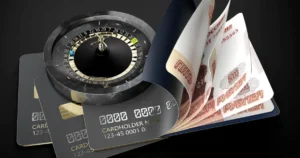Have you ever received a message or email from an unfamiliar sender claiming that you’ve won a large sum of money from a lottery you don’t remember participating in? Or maybe you’ve heard stories about people falling victim to this scam since it happens a lot these days.
This is known as a lottery bogus, where scammers deceive you with a false claim, saying you’ve won a prize when, in reality, you haven’t. Unfortunately, this type of fraud is quite common in today’s digital world. To protect yourself, especially when playing lottery games, it’s important to understand lottery scams and how to avoid them.
What is a lottery scam?
A lottery scam is a type of advance-fee fraud where scammers promise victims a substantial sum of money. To claim your supposed wins, scammers ask for an initial payment, claiming it will help them access the funds more easily. It’s also important to remember that scammers can target anyone, even if the victims haven’t participated in a legitimate lottery or contest.
This scheme will send you an enticing message like ‘Congratulations! You have won!’. This can be alluring, especially for people who are struggling financially.
Once the victim shows interest, the scammer might ask them to keep the news confidential to avoid realising that the lottery big prize winning danger is real. They may also instruct the victim to contact a ‘claims agent’ to proceed with the processing of prize collection.
Processing fee
When the victim contacts the claims agent, the agent will talk their way into believing that you need to pay a processing fee first before they can transfer your winnings. Scammers are trained enough to answer inquiries and make you believe that processing fees are not an issue.
The idea is that you will never receive your prize money if you don’t pay upfront. After the ‘processing fee’ payment, the deception will end, and the scammers vanish. The victim will never receive any prize money that was promised.

Types of lottery scam
Lottery scams come in various forms and often target vulnerable individuals through different channels, including social media. Aside from money, they also target personal information from the victims. Here are some of the most prevalent types of lottery scams:
Bogus lottery emails
This scam operates through email accounts. The scammers inform recipients that they have won a lottery despite it being entirely fake.
To make the emails appear authentic, scammers may use logos, branding, and official-sounding language of legitimate lottery organisations or well-known companies. They may also create a lottery official site fake.
These fraudulent emails use well-known tricks of evoking a sense of urgency to manipulate recipients to act fast. They often include exclamation points, megaphone icons, and more to pressure the victim for an immediate response to claim the supposed winnings.
Claiming of supposed ‘winnings’
Scammers may request victims to click links within the email, redirecting them to a webpage. On this webpage, victims are typically asked to provide personal information, including their full name, address, phone number, and sometimes even bank account details. This makes fake lottery account registration dangerous since your confidential information also gets exposed.
Mail fraud targeting individuals
This old-school scam is conducted through postal mail. Scammers typically send letters that may appear genuine but make false promises. They use deceptive techniques to exploit victims and obtain money or personal information. Apart from lottery mail fraud, there are also other forms of it, such as the following:
Fraud against older individuals
Senior citizens may receive mail offers for a free home inspection or health insurance. Some seniors may try to save money by ordering drugs from overseas through mail delivery. However, these may not be delivered at all. Others include fake lottery wins, land scams, and many more.
Fraud against veterans
Mail fraud often targets veterans and active-duty military families. They may be tricked into paying for free records, offered fake discounts on cars, homes, and rentals, or receive deceptive donation requests.
Fraud against the unemployed
Scammers use employment schemes to give false hope to unemployed people. They may ask for upfront fees but provide no help, offer worthless stocks as investment opportunities, charge fees for job applications, or involve individuals in pyramid schemes.
Phone scams
Lottery scams aren’t limited to emails or traditional mail; they can also occur through telephone or mobile phones, including text messages and phone calls. Here’s a typical way scammers carry out their phone scams.
Unsolicited phone calls
Victims might receive unexpected phone calls from unfamiliar numbers. When victims answer, scammers pretend to be from well-known lottery organisations or government agencies. They trick victims by falsely claiming that they have won a lottery or prize, intending to gain trust and manipulate them.
Request for personal information
During the conversation, if scammers sense that the victim is becoming more susceptible to the scam, they will request personal information. They may claim that it is necessary to immediately transfer the winnings or verify the victim’s identity. This request can be convincing, especially for vulnerable individuals.
Transfer charges
After building excitement and anticipation in the victims by informing them about the large sum of money they have supposedly won, scammers may ask for upfront payment or processing fees to claim the prize. They provide various reasons, such as taxes, legal expenses, or administrative costs, to make the requested payment seem legitimate.
Fake lottery tickets
In the fake lottery ticket scam, scammers create counterfeit lottery tickets or alter genuine lottery tickets to make them look like winners. These fake tickets are sold or shown to people, tricking them into thinking they have won a big prize. In reality, the tickets are worthless, and the scammers profit by selling them.
Another scenario involves someone approaching you with a winning lottery ticket but claiming they can’t cash it for various reasons. They ask you to pay the deposit fee and promise to repay you once they claim the prize. Alternatively, they might ask you to buy the ticket from them at a much lower price than its actual value. You take the ticket to cash it, only to discover it’s fake.
Lottery syndicate scam
A lottery syndicate is a group of people who pool their resources to buy more tickets, which increases their chances of winning. If they win, the prize money is shared among the members. However, in a lottery syndicate scam, scammers take advantage of the participants in different ways to deceive and exploit them. Here’s how it works:
Recruiting participants
Scammers begin by recruiting individuals to join a fake lottery syndicate. They lure people in by making big promises of large prizes. They may approach potential victims in person, through social media platforms, or via email to convince them to participate.
Payment
Once enough participants have been recruited, the scammers will start collecting payments from them to contribute money to the syndicate. Some scammers may ask for a one-time payment, while others may request ongoing contributions.
They may accept cash, bank transfers, or other payment methods. The scammers may also ask for personal information from the participants, making it seem like a normal part of the process to avoid raising suspicion.
The lottery syndicate scam is on a larger scale compared to other types of lottery scams. This is because scammers must update their participants throughout the process. However, when it comes to explaining their operations, such as selecting numbers or distributing winnings, they often avoid giving clear details.
Fabricated winnings
Scammers trick participants by claiming they have won a prize, but they use fake information or fake lottery tickets as proof. They do this to gain the participants’ trust and convince them to give more contributions. After all this, the scammers vanish or make excuses about delays in claiming the prizes, leaving participants defrauded.

The impact of lottery scams on victims
Lottery scams have a far-reaching impact on victims beyond just losing money. The result can be severe and may heavily affect various aspects of their lives, including their mental and emotional well-being. Depending on individual coping mechanisms, the effect can be short or long-term for victims. Some of the most common and significant impacts that they experience after a lottery scam include:
Financial loss
Victims of lottery scams endure financial losses as a result of investing their money in fraudulent schemes or being deceived into paying fake fees and taxes. These losses can be devastating. You can lose your entire savings, end up in debt, or even face bankruptcy.
Take note that once victims of lottery scams transfer their money to the scammers, the scammers often vanish, leaving the victims with little hope of getting their funds back. Recovering from these financial losses can be extremely challenging and may take a long time, if it’s even possible.
Identity theft
Lottery scam victims not only lose their money but also become victims of identity theft. This means that scammers steal their personal information, such as bank accounts or credit card details.
With this information, scammers can access victims’ bank accounts, credit cards, or other financial accounts. They can use this access to make unauthorised withdrawals or fraudulent charges, which can cause even more financial losses for the victims.
Emotional distress
Lottery scams can deeply affect the emotions of the victims. They may feel betrayed and angry, both at the scammers and themselves for being deceived. Victims often experience feelings of shame and embarrassment, thinking about what others will think of them. This can lead to a lot of stress and overwhelming thoughts.
What makes it even more saddening is that victims of lottery scams often feel helpless and vulnerable because they were tricked. They start doubting their own judgement and feel like they’ve lost control over their lives and money. This can lead to a loss of confidence and self-esteem.
Trust issues
Victims become more sceptical and careful when dealing with new people or opportunities, which can be a good thing. However, this cautiousness can also make it difficult for them to build new relationships.
Victims may struggle to trust others and have difficulty opening up because they fear being deceived again. These trust issues can not only affect their ability to form new relationships but also strain existing ones.
Psychological impact
Being deceived and defrauded in a scam can lead to serious mental health issues such as depression and even post-traumatic stress disorder (PTSD). Victims may also have an increased level of anxiety and fear as they worry more about the impact of the scam they fell for, especially from a financial perspective.
Legal complications
When victims of lottery scams have their identities stolen, they may even encounter legal problems if the stolen identity is used for unlawful activities. This can lead to false accusations, legal conflicts, and the challenging task of proving their innocence.

Common signs of lottery scams
If you have a particular interest in lottery games, make sure to exercise additional caution to protect yourself from scams. There’s a well-known saying, ‘If it sounds too good to be true, it probably is,’ which also applies to lottery scams. To fully avoid them, it’s important to be able to identify clear red flags or warning signs, such as the following:
Unsolicited winning notifications
Be cautious if you receive an unexpected email, text message, or phone call claiming that you’ve won a big lottery prize, especially if you never entered any lottery contest or don’t recognise the source. It’s best to not respond and instead delete the message or hang up the phone.
It’s important to remember that reputable organisations generally do not contact winners unexpectedly. Legitimate companies usually ask for permission from customers if they want to receive notifications or advertisements, and they only message those who have agreed and are verified participants.
Requests for personal information or upfront payment
If you are asked to provide personal information or make a payment, it is highly likely to be a scam. Even if the scammer appears convincing, the request for upfront payment is already a significant red flag.
It is best to end the communication at that point. Remember that legitimate lotteries do not require lottery winners to make upfront payments or share confidential information such as bank account details and sensitive personal information.
Poor grammar or spelling errors in emails
Scammers can often be identified by the quality of their letters, emails, or texts. If the message is poorly written, contains numerous typos, or lacks a professional tone, it is a red flag for a scam.
These types of messages indicate that only a small number of individuals are involved, and they may not have the time or skills to put effort into proofreading their messages. In contrast, reputable organisations generally uphold professional communication based on industry metric and standards.
High pressure or sense of urgency
If a contact agent is pressuring you to make immediate decisions or using tactics to make you feel regretful for not accepting their offering, it is likely a scam. Legitimate lottery organisations do not need to pressure their winners to claim their prize money.
They understand it is a legitimate prize, and there is no urgency to force winners into hasty decisions. Genuine lotteries provide winners with a reasonable amount of time to claim their prizes. After all, winners of lotteries typically cannot be changed even after a day of winning.
Unverifiable contact information
One of the best tips to avoid scams is to ask them all the necessary questions to prove their legitimacy. If they can’t give you clear or trustworthy contact information, instead, they give a generic email address or an address that doesn’t exist, then it’s a warning sign. Legitimate lotteries have reliable ways to communicate with winners and provide accurate contact details that can be checked.
Lack of transparency
When you receive a message from an unknown source, it is only natural to have questions about the organisation, its system, and how it relates to you. It is highly likely to be a scam if they provide limited information and avoid giving clear details. Legitimate organisations are transparent and provide comprehensive information about their operations, rules, and procedures.

Top preventive measures to avoid scams
Now that you know the warning signs, here are some actions you can take to protect yourself from scams and help prevent scammers from continuing their fraudulent activities.
Educate the public about the scam
Preventing scams begins with educating yourself about what scams are, the warning signs to look out for, and the tactics scammers use. Once you have this knowledge, you can help protect others by raising awareness among the public. Make sure to also educate your friends and family.
Reporting them to the authorities
If you receive a message or call from an unknown source with a familiar scamming scheme, report them to the authorities. Their actions are illegal, and there are laws in place to penalise such behaviour. Reach out to your local law enforcement agency or contact organisations that specialise in preventing fraud and protecting consumers.
Be sceptical
Being sceptical is essential as it encourages you to ask more questions. This helps you uncover the truth or notice anything unusual in a situation. If you feel like something is suspicious, it’s important to trust your instincts and dig deeper.
This is especially true when you receive unexpected emails or phone calls. Being sceptical is the right and helpful approach in such cases. It allows you to be cautious and protect yourself from potential scams or deceptive actions.
Do you research
Don’t be quick to trust enticing messages or promises from potential scammers. Take the time to do your own research first. If you’ve entered lotteries before and received a notification, check if the organisation they mention is real and trustworthy.
You can even call their customer support to confirm. Being well-informed is important to avoid falling for scams. Remember, scammers often target those who are vulnerable, so by staying informed, you can protect yourself better.
Never pay to claim a prize
One important piece of common sense is that legitimate lotteries never ask winners to pay before claiming a prize. In the case of trusted online lotteries like XO Lotto, if you win, they will notify you through your website account and registered email address. Your winnings can be directly credited to your account, and they will never request upfront payment.

Play online lottery games on trusted platforms like XO Lotto!
It’s important to be smart enough to distinguish what is a lottery lie and what is not. Trusting lottery organisations poses a big risk, so being informed is crucial to maintaining a healthy and enjoyable lottery game experience.
One of the main ways to avoid getting scammed is to play lottery games on legitimate platforms such as XO Lotto. With them, you can enjoy a collection of the world’s best lottery games with secure and safe services. Remember that playing trusted lottery games can give you real chances of winning big prizes.
Frequently Asked Questions (FAQs)
How do lottery scammers contact their victims?
There are various ways that scammers contact their victims. This includes the following:
- Text messages
- Phone call
- Postal Mail
What are some common promises made in lottery scams?
Scammers typically promise their potential victims a large sum of prize money that they claim the victims have won. They make it especially enticing for victims to feel the sense of excitement and urgency to fall for the bait.
How can I recognise a potential lottery scam?
You may recognise a potential lottery scam by looking at the warning signs they possess. This includes the following:
- Unexpected winning notifications
- Unsolicited phone calls
- Request for personal information
- Request for upfront payment
- High sense of urgency
- Unverifiable contact information
- Poor grammar and errors in their messages














